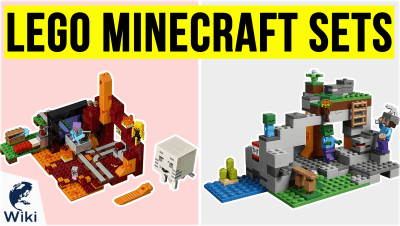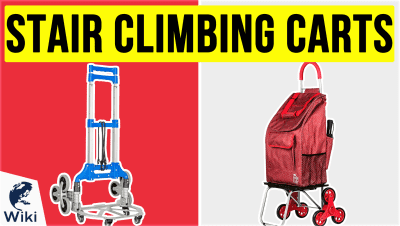5 Groups Helping People In Chicago Succeed
Rising inequality means that despite our best intentions, some people in America aren't given the same opportunities as others. Problems like food deserts and mass incarceration contribute to the cycle of poverty, but luckily there are some amazing organizations in Chicago working to ensure that no one is left behind. These groups focus on both youth and adults to provide job training, support, and advocacy in areas where it is most needed. This video was made with Ezvid Wikimaker.
5 Chicago Organizations Helping The Community
| Name | Focus |
|---|---|
| Big Brothers Big Sisters of Metropolitan Chicago | Pairs adult volunteers with kids from ages seven to fourteen in order to provide guidance and companionship |
| Growing Home | Revitalizes neighborhoods through urban agriculture, offering participants paid farming experience and selling nutritious produce at reduced cost |
| UCAN | All-inclusive healing and education agency that serves youth in the child welfare system and those who have faced neglect or abuse with counseling, foster care placement, therapeutic day school, and other initiatives |
| Chicago Coalition for the Homeless | Offers free legal services to homeless youth and adults, performs outreach at shelters, and advocates for public policy solutions |
| Jane Addams Resource Corporation | Trains low-income and unemployed adults, connects them to trade careers, and helps them rise above poverty with educational tools and financial guidance |
The Impact of Growing Home
High School Graduation Rates By State
As of the 2016-17 school year, according to the National Center for Educational Statistics
| State | Graduation Rate | State | Graduation Rate |
|---|---|---|---|
| Alabama | 89.3% | Montana | 85.8% |
| Alaska | 78.2% | Nebraska | 89.1% |
| Arizona | 78.0% | Nevada | 80.9% |
| Arkansas | 88.0% | New Hampshire | 88.9% |
| California | 82.7% | New Jersey | 90.5% |
| Colorado | 79.1% | New Mexico | 71.1% |
| Connecticut | 87.9% | New York | 81.8% |
| Delaware | 86.9% | North Carolina | 86.6% |
| Florida | 82.3% | North Dakota | 87.2% |
| Georgia | 80.6% | Ohio | 84.2% |
| Hawaii | 82.7% | Oklahoma | 82.6% |
| Idaho | 79.7% | Oregon | 76.7% |
| Illinois | 87.0% | Pennsylvania | 86.6% |
| Indiana | 83.8% | Rhode Island | 84.1% |
| Iowa | 91.0% | South Carolina | 83.6% |
| Kansas | 86.5% | South Dakota | 83.7% |
| Kentucky | 89.7% | Tennessee | 89.8% |
| Louisiana | 78.1% | Texas | 89.7% |
| Maine | 86.9% | Utah | 86.0% |
| Maryland | 87.7% | Vermont | 89.1% |
| Massachusetts | 88.3% | Virginia | 86.9% |
| Michigan | 80.2% | Washington | 79.4% |
| Minnesota | 82.7% | West Virginia | 89.4% |
| Mississippi | 83.0% | Wisconsin | 88.6% |
| Missouri | 88.3% | Wyoming | 86.2% |
Big Brothers Big Sisters from a Parent's Perspective
How Many American Children Live In Poverty?
Percentage of children ages 0–17 by family income relative to the poverty threshold, according to the Federal Interagency Forum on Child and Family Statistics
| Poverty Level | 1980 | 1990 | 2000 | 2010 | 2011 | 2012 | 2014 | 2015 | 2016 |
|---|---|---|---|---|---|---|---|---|---|
| Below 50% of poverty threshold | 6.9% | 8.8% | 6.7% | 9.9% | 9.8% | 9.7% | 9.3% | 8.9% | 8.2% |
| 50% - 99% of poverty threshold | 11.4% | 11.8% | 9.5% | 12.1% | 12.0% | 12.1% | 11.9% | 10.8% | 9.8% |
In Depth
In a city with as many people as Chicago, not everyone is given the same opportunities to succeed. Fortunately, committed nonprofits are working to rectify this by fighting against inequality and empowering underserved communities. Addressing important issues such as unemployment, physical health, and homelessness, the groups included on this list provide a variety of modern resources to aid those who face all kinds of social and economic disadvantages. In no particular order, here are five impassioned organizations dedicated to helping people in the Windy City thrive.
At #1 is Big Brothers Big Sisters of Metropolitan Chicago. A performance-based organization devoted to helping all kids reach their full potential, BBBSMC provides one-on-one mentoring services to thousands of children throughout the Chicago metro area. The service works by partnering adult volunteers with kids from seven to fourteen who, for whatever the reason may be, need guidance and companionship to overcome their setbacks and succeed. With programs personalized for each child, the organization reports that 100% of its mentored participants continue on to graduate from high school.
Designed to nurture growth while combatting the effects of violence, poverty, and other systemic inequities, BBBSMC's programs offer different approaches for addressing the needs of participants. One option is community-based mentoring, in which adult volunteers and their youth mentees go on outings together two to four times a month. Site-based programs, meanwhile, involve meetings at designated places such as schools, community centers, and workplaces. There is also an online option that allows for more flexibility in location and time of meeting. Help positively shape a child's future by becoming a volunteer mentor, or make a donation through AmazonSmile.
Designed to nurture growth while combatting the effects of violence, poverty, and other systemic inequities, BBBSMC's programs offer different approaches for addressing the needs of participants.
For #2 we have Growing Home. Started in 2002, this Englewood-based agricultural organization supports and revitalizes the South side neighborhood by providing its residents with farm-based training and career planning. Acknowledging that the prosperity of a community is dependent on economic stability as well as access to healthy food, it offers participants twenty-five hours per week of paid farming experience to help them gain the skills they need to procure nourishing jobs. It also sells its produce to its neighbors at a reduced cost, promoting physical health in order to improve the overall well-being of local communities.
Those enrolled at Growing Home's USDA-certified organic farms partake in all levels of the agricultural process, from planting and harvesting to packaging and selling. Committed to fostering professional and personal improvement, the organization's training model brings together hands-on fieldwork with a creative job-readiness curriculum, emphasizing character-building qualities such as responsibility, communication, and collaboration. To build coalitions and further help its participants find jobs, it partners with a number of local food employers similarly invested in the community. Support Growing Home's cause by donating a vehicle, or by making a gift of stock.
Showing up at #3 is UCAN. Originally established as a Civil War orphanage, UCAN is now an all-inclusive youth healing and education agency that serves thousands of at-risk children throughout Illinois. Its comprehensive care services include counseling, foster care placement, violence prevention, leadership development, therapeutic day school, and more. The organization believes passionately in the possibility of overcoming trauma and hardship through healing and learning, and works valiantly to nurture strong families, establish beneficial relationships, and empower individuals to become community advocates.
Its comprehensive care services include counseling, foster care placement, violence prevention, leadership development, therapeutic day school, and more.
UCAN's core clients are youth in the child welfare system and those who have faced neglect or abuse. Through positive youth development, the organization helps kids realize their potential by engaging them in community initiatives, educating them on pertinent topics, and giving them a voice in decision-making processes that affect their lives. Guided by a holistic treatment philosophy, its multitude of programs address issues ranging from family separation to teen parenting, and entail a host of services designed to instill strength, confidence, and independence. Get involved directly by joining UCAN's mentor program to work one-on-one with kids in need.
For #4 we get the Chicago Coalition for the Homeless. Determined to put an end to homelessness, CCH advocates for affordable housing across Chicago and Illinois by conducting an assortment of public policy campaigns and outreach initiatives. Asserting that housing is a human right, it uses legal aid and community organizing to work on behalf of the homeless population, demanding legislative measures that can allow them access to the resources they need. The group takes many grassroots approaches to its mission, including rallying people on the ground, offering mobile aid clinics, and creating opportunities for those living in shelters and other facilities.
Among CCH's advocacy initiatives are HomeWorks, an affordable housing campaign for families, and No Youth Alone, which lobbies for programs and policies that support unaccompanied minors. The Law Project, meanwhile, provides free legal services to both homeless youth and adults. In collaboration with the group's community organizers, the project supplies consistent outreach at shelters, where staff members disseminate information about legal protections and help homeless people obtain access to useful services. Because CCH relies on gifts and does not accept funding from the government, support its mission by making a one-time or recurring donation through its site.
Because CCH relies on gifts and does not accept funding from the government, support its mission by making a one-time or recurring donation through its site.
Finally, coming in at #5 is the Jane Addams Resource Corporation. Founded in 1985 with the goal of preserving manufacturing jobs in the Ravenswood neighborhood, J.A.R.C. has since expanded into a leading organization that trains low-income and unemployed adults, connects them to trade careers, and helps them rise above poverty. With the belief that everybody who works is entitled to a living wage, the group offers services built to facilitate economic self-sufficiency among workers, as well as cultivate strong businesses and communities.
J.A.R.C.'s programs, which include tutoring services and computer classes in addition to free job training and placement, equip adults with advanced skills so they're prepared for employment. Job training courses run from ten to twenty weeks, and provide instruction and hands-on experience in manufacturing areas such as welding and machining. Education programs offer both one-on-one and group tutoring in reading and GED preparation, among other subjects. Those enrolled in any program have free access to computer, math, and reading tools, as well as financial guidance. Assist J.A.R.C.'s operations by volunteering to coach trainees.




















